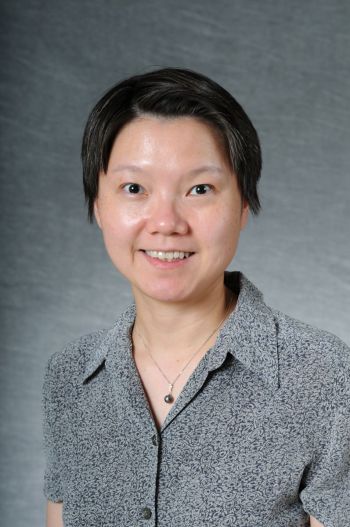
The key to unlocking a critical element of breast cancer treatment may lie with the work of Mei-Yi Wu, PhD, associate research professor in the Department of Anatomy and Cell Biology at the George Washington University School of Medicine and Health Sciences. With a $1.8 million grant from the National Institutes of Health, Wu is looking for the balance between reducing interferon pro-tumor effects while simultaneously building its anti-tumor effects in breast cancer to inform potential therapeutic approaches.
Following a surgical resection of their cancer, patients typically receive adjuvant radiotherapy or chemotherapy treatments. Cancer cells, however, can develop therapeutic resistance. A crucial factor in determining whether a tumor relapses or responds to treatments is interferon, or IFN, which can both promote or counteract cancer progression.
Irradiation and chemotherapy drugs can help IFN secreted from cancer cells and immune cells achieve anti-tumor function, but IFN signaling can, paradoxically, induce pro-tumor effects and promote cancer cell resistance to treatments. Theoretically, inhibition of the IFN pathway could restore therapeutic sensitivity, but indiscriminate suppression of the IFN pathway could hold back its anti-tumor effects.
“Understanding how IFN protects cancer cells against therapies is critical,” Wu said. “Our study identifies the regulators that specifically determine IFN pro-tumor effects but not IFN anti-tumor effects. We’re also defining how regulators drive the IFN signaling pathway toward the pro-tumor actions but do not influence IFN anti-tumor function. Our goal is to advance therapy strategies that selectively block the pro-tumor effects of IFN while preserving its anti-tumor effects.”
Wu also plans to demonstrate the function of key regulators in promoting breast cancer progression as well as inhibit the key regulators to increase the efficacy of irradiation or chemotherapy drugs in breast cancer.
[Draft quote] “We hope to leverage our findings to inform new medical interventions to treat breast cancer,” Wu said. “Our priority is to improve survival for breast cancer patients and ensure that we are taking yet another step forward in managing this disease.”
The grant is scheduled to run through July 2026.


